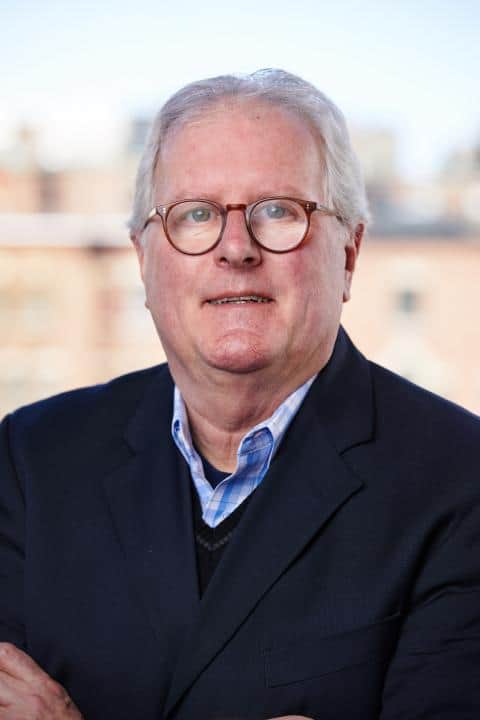by Bob Mulvey

Career college counselor Bob Mulvey shares his thoughts
In 2021, Bob Mulvey joined the team at Inside Music Schools (IMS) as a special advisor to help music school applicants to improve their learning and organizational skills. Bob came to IMS after a highly successful career as an educator and counselor working with young people ranging from middle-school pupils to college students. He served for 32 years at Berklee College of Music as associate director of the counseling and academic advising center and director of disability and accommodation services. In addition, he taught organizational skills and music business courses as a Berklee associate professor.
At the University of Massachusetts Amherst, Bob earned his bachelor’s degree in English and master’s in education with an emphasis on educational psychology and learning theory. The son of a public-school music teacher, he has been immersed in music for his entire life. Bob has been a guitarist and singer in bands from his teen years to the present and took numerous music courses during his college career. He remains passionate about helping students planning on becoming music majors and ultimately music professionals. Below, he shares thoughts on helping applicants overcome challenges en route to their dream career.

IMS: What led to you to a career advising students at Berklee?
Bob Mulvey: After earning my master’s degree, I got a job at the Twain School, an alternative school in Western Massachusetts for kids who had been struggling in their previous schools. The students had learning issues, ADD, and psychological issues that were undiagnosed. I ended up doing a lot of counseling and teaching English, psychology, and guitar. In that job I became familiar with a lot of learning issues firsthand. I later became an associate professor at Lesley College [now Lesley University] doing research in this field. A friend introduced me to a dean at Berklee in 1989. After I told him about the work I was doing, I was offered a position in Berklee’s counseling center and I went on to develop Berklee’s program for those with learning problems. I later worked with students with physical disabilities
IMS: Can you describe situations you encountered in your work with Berklee students?
BM: At first, I was working with disorganized kids—people who wanted to play drums or guitar all day and not go to English or music theory classes. After I got to know all of the department chairs, deans, and many faculty members, I began working directly with the faculty to help their students who had been diagnosed with dyslexia, ADD, or were on the autism spectrum. I also worked with visually-impaired students to help translate very visual music into a non-visual form for blind students.
I worked with a core of students every year and really got to know them. I’d go to their recitals, and in some cases, I met their parents. I’m still in touch with some of these former students.
IMS: How did you come to join the IMS team?
BM: I had worked closely with Steve Lipman [founder and president of IMS] when he was assistant vice president for student affairs at Berklee. After I retired from Berklee, Steve asked me to assist with students he was helping through IMS.
IMS: Can you give an overview of what your work at IMS involves?
BM: Well, this year I worked with five kids, and they all got into good music schools. My job was to help them complete everything they needed to do for the colleges they were applying to. Some of the kids or their parents let us know in advance that their son or daughter had an issue with ADD or learning. Parents now understand that IMS has someone who can help if the applicant has problems with organizational things. Steve and David Fish can tell when a student isn’t getting the application done or auditions scheduled that they should refer the family to me. I teach these kids about time management, calendaring, prioritizing, and more.
I had one student, a great kid who was very typical of the students I worked with at Berklee. He was a drummer, high energy, and very distractible. We met during his junior year, and I helped him organize his calendar and prioritize the schools for which he needed to complete an application and essay.
Everyone knows what senior year in high school is like, it can be a lot for anyone to handle. Kids who are distractible and put off doing what needs to get done tend to fold in on themselves when it all gets to be too much. This student was at that point, and I reassured him that we would make a plan and get everything done. He ended up being accepted to every school he applied to. His final choice was the University of Colorado Denver.
I also work with students who are over extended and have taken on too much. In addition to their regular studies, they may belong to the orchestra, glee club, or choir, and play in a band outside of school. For those doing too much, we try to figure out what activities will help the most for getting into college. Then we determine what things they should let go.
Some don’t want to let some activities go. I tell them the reality of going to a serious music school is that they will be studying things that are not just about playing or singing. They will be required to take music theory, ear training, English, history, music technology, and more, and need to look at all of these things carefully. Sometimes we recommend a private instructor to help them improve in these other areas. They need a plan to get closer to what they want to do.
IMS: In what other ways do you help applicants?
BM: I had a young woman who did not tell us that she had a learning issue. She was a good student with good grades, and we felt she would do fine in her auditions because she was a good singer. But in talking with her, I perceived that she might struggle doing college interviews, so we focused on how to interview. First off, I told her she needed to learn to make more eye contact when talking to people. IMS has a sheet on interviewing and the type of questions that might be asked. We did a few Zoom meetings to cover the questions that might come up for her. In the end, her interviews went well. She got into a couple of the schools she applied to and hopes ultimately to transfer to Berklee.
IMS: How do you give hope to a student who may have some of the issues you’ve mentioned?
BM: Through the years at Berklee I saw a lot of students graduate who struggled in the beginning or were worried when they started that they wouldn’t make it. We figured out the accommodations they needed and advised the student and family about how to talk to the college regarding what they needed. In my work for IMS, I advise students with a learning disabilities about what to ask for when they get to their college. This greatly eases the worries and increases their chances for a successful college experience.
Contact Us:
Did you find this blog helpful? Do you picture yourself in a music career? If the answer to that is a “yes”, your next step is simple. Contact insidemusicschools.com and allow our team of industry insiders to guide you toward your goal of being a professional in the music industry. Through expert counseling and real world experience, we will make sure you are prepared for the journey

Bob Mulvey
Bob Mulvey serves as a special consultant and advisor for Inside Music Schools, especially in the areas of learning and organizational skills. Bob has many years of experience as an educator, college administrator, and clinician. He taught in secondary settings, including public, vocational, and alternative schools. Bob held the position of Instructor in the Graduate School of Lesley College and the English Department at Bunker Hill Community College. Over 32 years at Berklee College of Music, Bob was Associate Director of the Counseling and Academic Advising Center, Director of Disability and Accommodation Services, and an Associate Professor. Bob holds a Bachelor’s Degree in English Literature and a Master’s in Education from the University of Massachusetts in Amherst.
